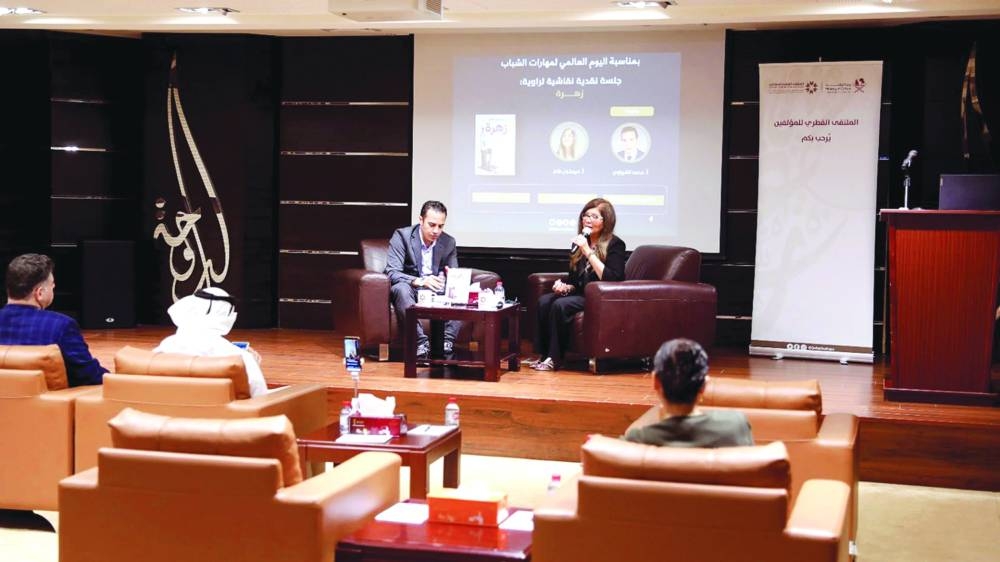
The Qatari Forum for Authors held a discussion at the House of Wisdom Hall in the Ministry of Culture, focusing on the novel Zahra by Iraqi writer Maysloun Fakher, coinciding with the World Youth Skills Day. The session was moderated by Mohamed al-Shabrawi and attended by writers, intellectuals, and enthusiasts.
The novel addresses the challenges faced by an Arab asylum seeker in Europe, specifically Sarah, the protagonist, who grew up in Swedish society. Sarah’s tragedy begins when she is taken from her biological parents and placed with another family. This traumatic event fills her with anxiety and obsessions, rooted in the fragmented nature of her experience. Her life is marked by a mixture of secret and public suffering, leading her to confront burning questions in a world filled with chaos, numbness, and indifference.
Sarah grapples with feelings of inferiority imposed by the dominant perspective of the other side. She is caught between brutal wars and the pressures of Westernisation, which aim to destroy, distort, and sever her connection to her roots. This results in a sharp decline and confusion within her displaced world, leaving her complicit in the devastation. She is haunted by a sense of shame, seen as primitive and degraded through Orientalisation, while simultaneously being pressured by the madness of Westernisation.
Sarah is portrayed as intolerant and supportive of her roots, despite the challenges she faces in Stockholm. Since childhood, she has endured ostracism, abuse, and the conflict of her paths intersecting with fatalism. She suffered from coercive care procedures, including the termination of her biological parents’ rights and her placement in alternative care.

